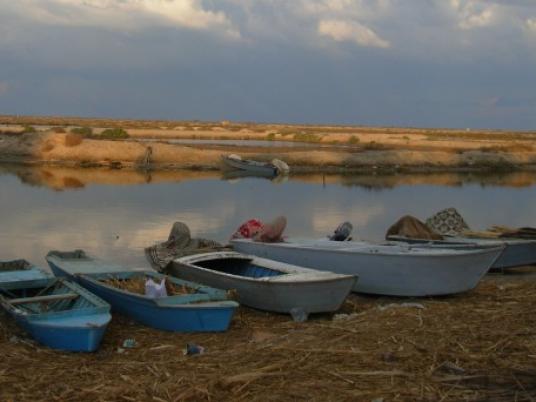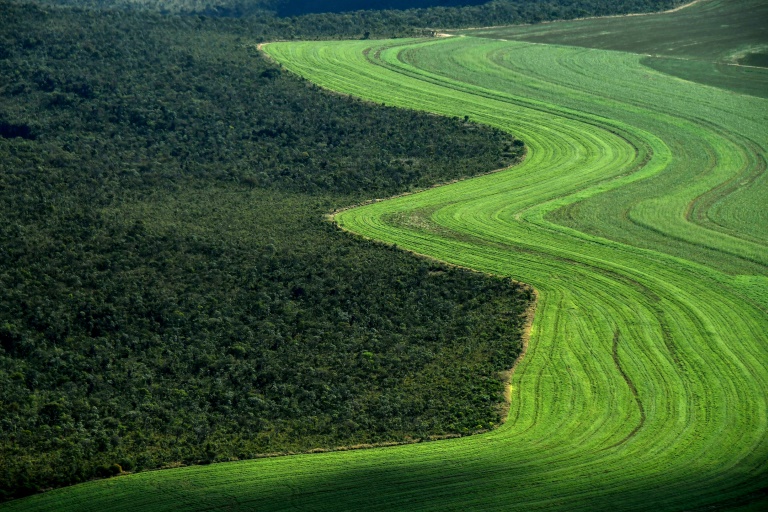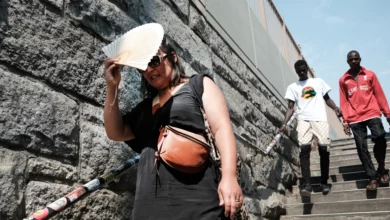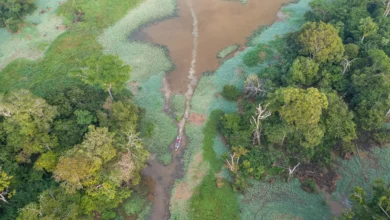
Egypt is currently gripped by campaign frenzy as candidates prepare for the upcoming parliamentary elections. Not only is there a staggering number of new political parties, but also issues that had previously been overlooked are finally being addressed by electoral campaigns. For the first time, environmental issues are featured in several candidates’ platforms.
If these green-friendly candidates are voted into office, environmentalists will rejoice at the prospect of a parliament with an environmental agenda and the power to implement legislative measures and oversight for environmental protection.
We take a look at some of the parties and candidates who are addressing environmental issues.
Political parties
The Green Party of Egypt: The Green Party, founded in 1990, existed as an officially sanctioned political party in Egypt during former President Hosni Mubarak’s 29-year rule. With its mere 3000 members, this party has historically been unable to garner much influence in Egypt’s political landscape. The party had hoped to field 22 candidates in the upcoming parliamentary elections, but due to limited resources only three are running. The party was initially part of the Democratic Alliance, which was formed in June of this year, but has since left the coalition.
The Green Party is campaigning using the slogan “scientific solutions implemented politically.” The party’s priorities include “greater conservation of water resources, promoting greater use of renewable energy sources alongside supporting scientific research for the exploitation of new energy sources and restructuring Egypt’s education system with the intent to achieve greater environmental awareness,” says Hisham Zayed, head of the Green Party. According to Zayed, the party envisions a renaissance for Egypt that will be accomplished through this focus on energy and the
environment.
Freedom Egypt Party (Misr Al-Hurriya): Formed in May 2011, the Freedom Egypt Party has a liberal platform, advocating social justice and equality between citizens. The party has joined the Revolution Continues Coalition, which was created in October of this year and consists of leftist and centrist parties.
The party is working to develop a long-term environmental program. To date, five major policy papers have been prepared about this program. If the party is elected, members hope to implement “a water policy for sustainable water resource management through better use of scarce water resources, in collaboration with the Nile riparian countries, and an agriculture policy that will achieve food security while encouraging sustainable consumption habits,” according to Mohamed al-Mongy, environmentalist and member of the party.
Freedom Egypt will also encourage “a waste management policy with a holistic life cycle regulatory approach, a climate change policy that includes both adaptive and preventative measures and a conservation policy aimed at reducing habitat loss and enhancing ecosystems’ services,” Mongy adds.
The Nour Party: The Nour Party follows Salafi doctrine and is one of 14 Islamist parties making up Egypt’s political landscape. The party leads the Alliance for Egypt, popularly known as the Islamist Alliance, and one of the issues included in their platform is environmental protection.
Among the environmental issues Nour seeks to address are “water pollution of the Nile and the prevention of water-borne endemic diseases through close cooperation with neighboring countries,” according to a party brochure. The party promises to “move industrial complexes away from heavily populated areas and enforce the use of filters, while encouraging the production and use of alternative energy resources, with a focus on clean energy.”
The Nour Party will work to “provide the required funding to further research projects in clean energies and put in place strict control measures to prevent the import or use of forbidden pesticides which cause pollution and the spread of illnesses,” according to the same brochure.
Individual candidates
Magy Mahrous: Running individually in Cairo’s Ninth District, Mahrous is a member of the Social Democratic Party, which is part of the Egyptian Bloc, a liberal coalition. Mahrous campaigns under the slogan, “Like all Egyptians, I am concerned with education and the environment.”
She explains that environmental issues are an integral part of her electoral platform. “We have been enjoying a free ride for the past 30 years. It is time to change course. It is time for the environment to be a priority, and for that we need a paradigm shift,” she tells Egypt Independent. “Crucial issues such as food security and health problems ensuing from various pollution sources need to be highlighted to counter the perception that environmental issues are of lesser importance. Otherwise, any attempts for sustainable development will be severely
compromised.”
Mahrous focuses specifically on issues surrounding water use and air pollution. Her campaign highlights water policy because Egypt loses much of its water resources as a result of misuse. Due to the presence of large numbers of industrial complexes in her district, Mahrous is especially concerned with air pollution. She proposes the restructuring the Ministry of State for Environmental Affairs, as it currently lacks the legislative backing to enforce environmental regulations. She also supports the use of renewable energy sources to help alleviate air pollution.
Mahmoud Salem: Salem is a member of the Free Egyptians Party, established in April 2011, a liberal party that is also part of the Egyptian Bloc. He is running individually in Cairo’s fourth district. Environmental protection is one of the pillars of his campaign. Salem admitted that the inclusion of environmental issues in his campaign stems from a deep-rooted personal interest in our survival as a species. “If we don’t take environmental problems seriously, humans will be eradicated as a species. It’s that simple,” he says.
Environmental issues featured in Salem’s platform include agriculture, energy and health. He proposes replacing traditional irrigation systems with irrigation methods such as drip irrigation, which is less wasteful. Salem proposes the removal of certain energy subsidies to encourage industries to use clean sources of energy and supports the creation of industrial zones located far from cities to protect citizens from diseases caused by industrial pollution.
Gameela Ismail: Running individually in Cairo’s sixth district, Ismail is a member of the Tomorrow Party, which was established in 2004. Ismail ran for parliament in 2010 and was defeated by a candidate affiliated with the National Democratic Party, the ruling party at the time. Her slogan is, “We made the revolution. We deserve justice and happiness.” Ismail insists that environmental sustainability is necessary in order to achieve a higher quality of life for the Egyptian people.
“Happiness in itself is a new target in Egypt’s political sphere; lack of happiness was a huge part of triggering the revolution, and cannot be seen as a luxury but as a necessity for Egyptians’ well-being. To achieve this happiness, social justice needs to be guaranteed and environmental issues are a core part of this,” she says.
Since her 2010 campaign, Ismail has focused on the need for new urban planning strategies, which are a major issue in her district. She aims to increase the development of green, public spaces for citizens and would also like to see fewer concrete buildings on the banks of the Nile. ■




